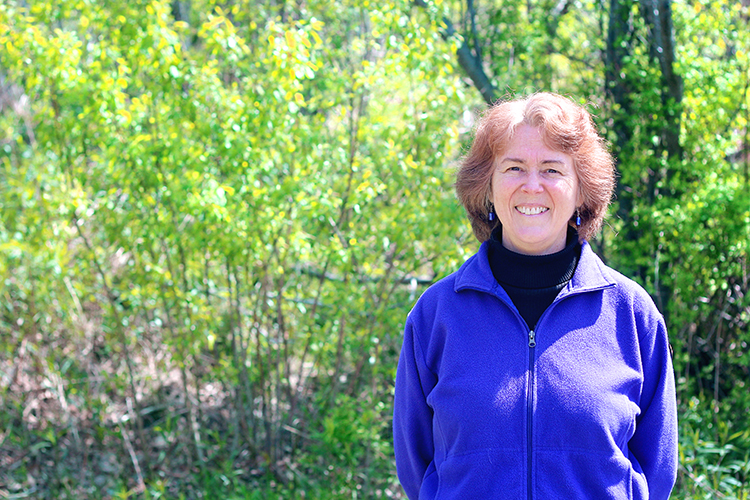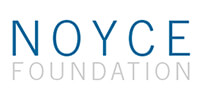Publications
EXPERT COMMITTEE PUBLICATIONS
(2009) National Academies NRC Consensus Study Committee on Learning Science in Informal Environments. Resulting publication: Learning Science in Informal Environments: People, Places, and Pursuits. Washington DC: The National Academies Press.
(2009) National Academies NRC Volume on Learning Science in Informal Environments: Practitioner Volume. Resulting publication: Surrounded by Science. Washington DC: The National Academies Press.
(2008) National Science Foundation invited participant in ISE Evaluation Workshop (2007). Resulting publication: Friedman, A. (Ed.). (March 12, 2008). Framework for Evaluating Impacts of Informal Science Education Projects [Online]. (Available at: http://insci.org/resources/Eval_Framework.pdf).
MONOGRAPHS
Allen, S. (2004). Finding significance. San Francisco, CA: Exploratorium. (Excerpts available online at http://www.exploratorium.edu/partner/significance)
Gutwill, J.P. & Allen, S. (2010). Group inquiry at science museum exhibits: Getting visitors to ask juicy questions. Walnut Creek: Left Coast Press.
BOOK CHAPTERS AND ARTICLES
Peterman, K., Garlick, S., Besley, J., Allen, S., Lambert, K.F., Nadkarni, N.M., Rosin, M.S., Weber, C., Weiss, M., & Wong, J. (2021). Boundary spanners and thinking partners: Adapting and expanding the Research-Practice Partnership literature for Public Engagement with Science (PES). Journal of Science Communication 20(7). https://doi.org/10.22323/2.20070801
Peterman, K., Robertson, J.E., Allen, S., Byrd, S., Nickerson, B., & Kastelein, K. (2021). Sustainability, spread, and shift: Developing a professional learning program for out-of-school educators with scale-up in mind. Frontiers in Education 6(225). https://doi.org/10.3389/feduc.2021.675233
Weber, C., Allen, S., & Nadkarni, N. (2021). Scaling training to support scientists to engage with the public in non-traditional venues. Journal of Science Communication, 20(4), N02. https://doi.org/10.22323/2.20040802
Cook, K., Lakin, H., Allen, S., Byrd, S., Nickerson, B., & Kastelein, K. (2021). Virtual coaching PLCs in and out of school. Connected Science Learning, 3(1), https://www.nsta.org/connected-science-learning-january-february-2021/virtual-coaching-plcs-and-out-school
Allen, S., Kastelein, K., Mokros, J., Atkinson, J. & Byrd, S. (2020). STEM Guides: Professional brokers in rural STEM ecosystems. International Journal of Science Education, Part B, 10(1), 17-35. DOI: 10.1080/21548455.2019.1700317
Chick, PC., Allen, S., & Cook, K. (2020). Simple strategies for your blended meetings: When we are apart, we can still be together. Informal Science. https://www.informalscience.org/news-views/simple-strategies-your-blended-meetings-when-we-are-apart-we-can-still-be-together
Kastelein, K., Atkinson, J.D., Byrd, S., & Allen, S. (2020). Informal STEM learning for rural teens: Focusing on first responders. Journal of STEM Outreach, 3(1), 1-7.
Sneider, C. & Allen, S. (2019). Formative assessment of STEM activities in afterschool and summer programs. Connected Science Learning, 11(2).
Allen, S. & Peterman, K. (2019). Evaluating informal STEM education: Issues and challenges in context. In A. C.Fu, A. Kannan, & R. J. Shavelson(Eds.) Evaluation in Informal Science, Technology, Engineering, and Mathematics Education. New Directions for Evaluation, 161, 17-33. American Evaluation Association.
Nadkarni, N., Weber, C., Goldman, S., Schatz, D., Allen, S., & Menlove, B. (2019).Beyond the deficit model: The ambassador approach to public engagement. BioScience, biz018, https://doi.org/10.1093/biosci/biz018
Brasili, A. & Allen, S. (2019).Beyond the webinar: Dynamic online STEM professional development. Afterschool Matters, 29, 9-16.
Allen, S. and the ACRES Project Team (2018).Eleven tips for a better advisory board meeting.CAISE Newsletter, February.Retrieved from http://informalscience.org/news-views/11-tips-better-advisory-board-meeting.
Kastelein, K., Allen, S., Keller, T.E., & Mokros, J. (2018). The 2018 Rural Informal STEM Conference: Final Report, Maine Mathematics and Science Alliance. Retrieved from http://www.mmsa.org/projects/RuralConference2018
Mokros, J., Atkinson, J., Allen, S., Saunders, A., & Kastelein, K. (2017). Facilitating formal-informal connections in rural STEM ecosystems. Connected Science Learning, 3(June 13). Retrieved from http://csl.nsta.org/issue-archive?_sft_issue=issue-3.
Allen, S. & Gutwill, J.P. (2016). Exploring models of research-practice partnership within a single institution. In Sobel, D. M., & Jipson, J. (Eds.), Cognitive development in museum settings: Relating research to practice. (pp. 190-208). New York: Psychology Press.
Allen, S. & Ouelette, K. (2016). Building coaching relationships over the internet. AfterSchool Today, 7(3), (pp.12-13).
Allen, S. (2015). Review of “Progressive Museum Practice: John Dewey and Democracy, Hein, G.E.â€, Curator: The Museum Journal, 57(3), 387-391.
Feinstein, N., Allen, S., & Jenkins, E. (2013). Outside the pipeline: Re-imagining science education for non-scientists. Science, 340, 314-317.
Allen, S. & Storksdieck, M. (2013). Review of Putting Theory Into Practice: Tools for Research in Informal Settings, Ash, D., Rahm, J. and Melber, L., Visitor Studies, 16(2).
Allen, S., (2013). Interactive exhibits. Encyclopedia of Science Education. Heidelberg, Germany: Springer.
Allen, S. & Bonney, R. (2012). NRC and NSF frameworks for characterizing learning in informal settings: comparisons and possibilities for integration. Commissioned paper, National Summit on Assessment of Informal and Afterschool Science Learning, Board on Science Education, National Research Council. Retrieved from http://sites.nationalacademies.org/dbasse/bose/dbasse_071087
Gutwill, J.P. & Allen, S. (2012). Deepening students’ scientific inquiry skills during a science museum field trip. Journal of the Learning Sciences, 21(1), 130-181.
Gutwill, J.P. & Allen, S. (2010). Facilitating family group inquiry at science museum exhibits. Science Education, 94(4), 710-742.
Allen, S. & Gutwill, J.P.(2009). Creating a program to deepen family inquiry at interactive science exhibits. Curator: The Museum Journal, 52(3), 289-306.
Allen, S., Gutwill, J, Perry, D.L., Garibay, C., Ellenbogen, K.M., Heimlich, J.E., Reich, C.A., & Klein, C. (2007). Research in museums: Coping with complexity. In J.H. Falk, L.D. Dierking, & S. Foutz (Eds.), In principle, in practice: Museums as learning institutions (pp.229-245). Lanham, MD: AltaMira Press.
Serrell, B. & Allen, S. (2006). Broader use of guidelines for judging excellence in exhibitions. In B. Serrell, Judging exhibitions: A framework for assessing excellence (pp. 149-153). Walnut Creek: Left Coast Press.
Allen, S. (2004). Designs for learning: Studying science museum exhibits that do more than entertain. Science Education, 88(Suppl. 1), S17-S33.
Allen, S., & Gutwill, J. (2004). Designing with multiple interactives: Five common pitfalls. Curator: The Museum Journal, 47(2), 199-212.
Allen, S. (2004). What does evaluation have to do with best practices? In K. McLean & C. McEver (Eds.), Are we there yet? Conversations about best practices in science exhibition development (pp. 30-32). San Francisco: Exploratorium.
Allen, S. (2003). Studying learning in museums [Review of the book Perspectives on Object-Centered Learning in Museums]. American Journal of Psychology, Fall, 488-494.
Allen, S. (2002). Looking for learning in visitor talk: A methodological exploration. In Leinhardt, G., Crowley, K., & Knutson, K. (Eds.). Learning Conversations in Museums (pp. 259-303). Mahwah, NJ: Lawrence Erlbaum.
Gutwill-Wise, J. & Allen, S. (2002). Finding significance: Testing methods for encouraging meaning-making in a science museum. Current Trends in Audience Analysis.
Allen, S. (2000). How is writing a good set of questions like designing a good exhibit? Visitor Studies Today!, III(2), 17-18.
Coleman, G. & Allen, S. (1998). Component analysis of a successful multimedia exhibit, Current Trends in Audience Analysis.
Garcia-Luis, V. & Allen, S. (1998). Answering vistiors’ orientation questions: an evaluation of two sign formats, Current Trends in Audience Analysis.
Allen, S. (1997). Using scientific inquiry strategies in exhibit explanations. Science Education, 81(6), 715-734.
Allen, S. (1997). Sociocultural theory in museums: Insights and suggestions, Journal of Museum Education, 22(2&3), 8-9.
Reif, F. & Allen, S. (1992). Cognition for interpreting scientific concepts: a study of ‘acceleration’, Cognition and Instruction , 9(1), 1-44.
Allen, S. (1991). Optics: The Gaussian formula and the elusive fourth principal ray. American Journal of Physics, 60(2), 160-163.
Reif, F. and Allen, S. (1990). Interpreting and teaching scientific concepts: a study of ‘acceleration’, Berkeley Cognitivie Science Report No 62..
Pea, R.D., Sipusic, M., & Allen, S. (1990). Seeing the light on optics: Classroom-based research and development of a learning environment for conceptual change. To appear in the book resulting from the 7th Annual Tel Aviv Workshop on Human Development: Development and Learning Environments
Warner, B., O’Donoghue, D. and Allen, S. (1985). Rapid oscillations in CPD-48o1577. Monthly Notices of the Royal Astronomical Society, 212, 9P.
McHardy, I.M., Pye, J.P., Fairall, A.P., Warner,B., Cropper, M. and Allen, S. (1984). Identification of 3A 0729+103 with an intermediate polar-type cataclysmic variable. Monthly Notices of the Royal Astronomical Society, 210, 663.
Allen, S. (1984). PLATO as a course controller. Teaching at Rhodes, 1(2), 4.



